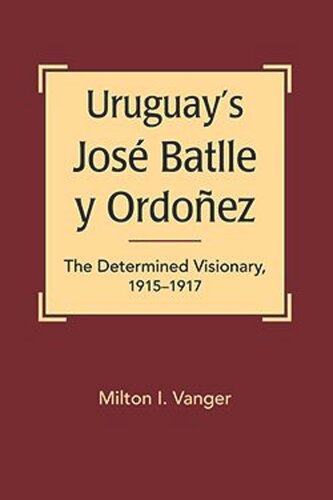

Most ebook files are in PDF format, so you can easily read them using various software such as Foxit Reader or directly on the Google Chrome browser.
Some ebook files are released by publishers in other formats such as .awz, .mobi, .epub, .fb2, etc. You may need to install specific software to read these formats on mobile/PC, such as Calibre.
Please read the tutorial at this link: https://ebookbell.com/faq
We offer FREE conversion to the popular formats you request; however, this may take some time. Therefore, right after payment, please email us, and we will try to provide the service as quickly as possible.
For some exceptional file formats or broken links (if any), please refrain from opening any disputes. Instead, email us first, and we will try to assist within a maximum of 6 hours.
EbookBell Team

4.0
6 reviewsIf one died and could not reach heaven, went the saying in Latin America during the presidency of José Batlle y Ordoñez, one might get at least as far as Batlle’s Uruguay. José Batlle was committed to a vision of advanced democracy that included a plural executive (the Colegiado), state-run enterprises, an eight-hour-maximum workday, women’s rights, and the abolition of the death penalty. In 1915-1917, having completed his second term in office, he was battling on toward a revision of the Uruguayan constitution that he believed would embody that vision. Batlle’s ideas proved to be too much for voters to accept. Nevertheless, he skillfully rescued part of his program and laid the groundwork for future reforms. As masterfully related in this concluding volume of Milton Vanger’s trilogy, the story of Batlle and this short episode in Uruguay’s history is significant far beyond its time. Even today, Batlle's legacy looms over current politics in the country much as FDR and the New Deal Coalition do in the United States. Arguably, no other single topic is more important in Uruguay’s political history.